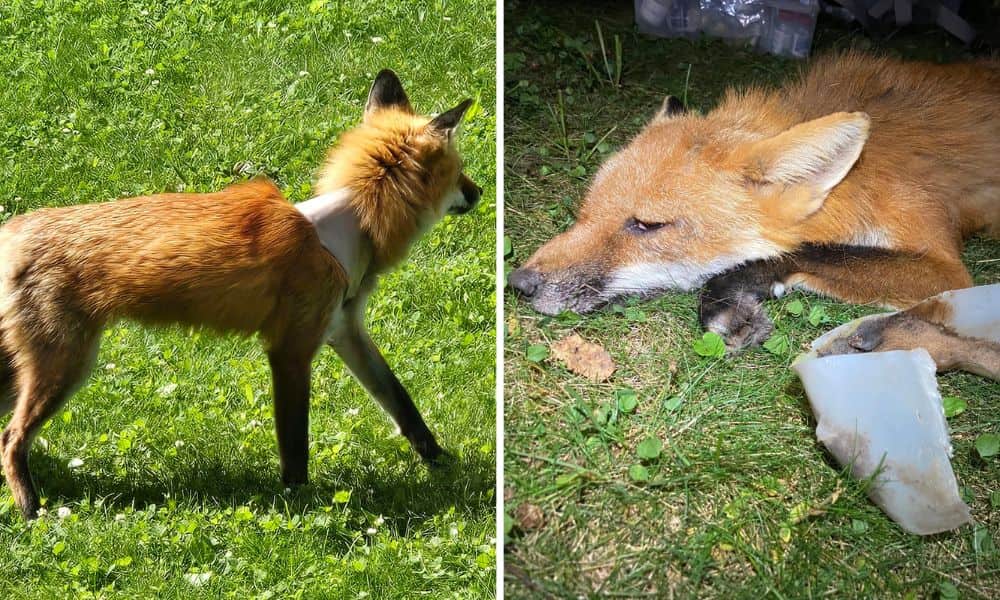A red fox caught in a piece of litter was rescued by wildlife biologists from the Connecticut Department of Energy and Environmental Protection (DEEP), as reported by local news.
DEEP posted that the biologists found the fox with plastic wrapped around their neck, inhibiting the animal’s ability to move freely.
“Unfortunately, wildlife can easily become stuck, entangled in, or ingest improperly discarded trash,” DEEP said. Animals often succumb to injuries struggling to free themselves, or because they are unable to digest the materials they have eaten.
Luckily, this fox did not meet the same fate. With the help of the State Environmental Conservation (EnCon) police and members of the community, the fox was caught and tranquilized, allowing biologists to cut the plastic away. The fox has since been returned to their den, DEEP said.
The fox’s predicament is just one of many examples that illustrate how our mounting pollution problem is affecting wildlife and their natural habitats. A 2021 study found that plastic ingestion has been documented in over 1,500 different species, including land, sea, and freshwater animals.
While past research on the environmental effects of pollution has primarily focused on marine animals, there is growing interest in the impact of plastic pollution on land animal health. Researchers from the University of Portsmouth revealed that a cow in Kenya ingested 35 kg of plastic. This finding has prompted further investigation into the effects of plastic pollution on foraging land animals.
As concern rises, DEEP has encouraged the public to follow recycling best practices in order to protect animals like the red fox from pollution-related suffering.
“Make sure that recyclables are thoroughly rinsed and placed in an appropriate, secure receptacle,” DEEP said. “Rinsing recyclables makes them less attractive to wildlife and better suited to be properly recycled.”







